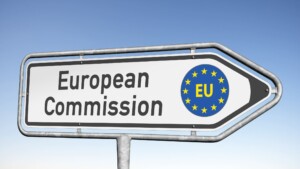 In order to meet the European Union’s climate and energy targets for 2030 and reach the objectives of the European Green Deal, the European Commission aims at directing investments towards sustainable projects and activities. This requires a common language and a clear definition of what “sustainable” means. Therefore, the Commission’s Action Plan on Financing Sustainable Growth called for the creation of a common classification system for sustainable economic activities, or an “EU Taxonomy”. The EU Taxonomy provides companies, investors, and policymakers with definitions according to which economic activities can be considered environmentally sustainable. This way, the Commission wants to help companies to make more climate-friendly decisions, mitigate market fragmentation, create security for investors, protect private investors from greenwashing, and shape the focus of investments within the EU.
In order to meet the European Union’s climate and energy targets for 2030 and reach the objectives of the European Green Deal, the European Commission aims at directing investments towards sustainable projects and activities. This requires a common language and a clear definition of what “sustainable” means. Therefore, the Commission’s Action Plan on Financing Sustainable Growth called for the creation of a common classification system for sustainable economic activities, or an “EU Taxonomy”. The EU Taxonomy provides companies, investors, and policymakers with definitions according to which economic activities can be considered environmentally sustainable. This way, the Commission wants to help companies to make more climate-friendly decisions, mitigate market fragmentation, create security for investors, protect private investors from greenwashing, and shape the focus of investments within the EU.
The Taxonomy Regulation which entered into force on 12 July 2020, establishes six environmental objectives, several of which directly relate to bioplastics. The Regulation requests the Commission to come up with an actual list of environmentally sustainable activities by defining technical screening criteria for each environmental objective through Delegated Acts. The Climate Delegated Act supplementing the Regulation clearly supports “plastics derived wholly or partially from renewable feedstock” as “substantially contributing to climate change mitigation”. Bio-based, biodegradable and compostable plastics make significant contributions to a carbon neutral Europe by acting as and helping create carbon sinks, all while decreasing Europe’s dependency on finite fossil resources. Bio-based plastics made from renewable resources play a crucial role in closing both the material and the carbon loop. At the same time, they help boost soil fertility by returning the biowaste’s nutrients in the form of high value compost. The EU Taxonomy acknowledges these benefits and therefore lists bio-based plastics as “green investments”.
The Climate Delegated Act brings the needed advantages to sustainable industries such as ours, where external investments in research and innovation are crucial. Besides an adequate political environment, a young industry in development also requires financial support to unfold its full potential. However, significant concerns had been formulated against bioplastics’ inclusion into the EU Taxonomy scheme related to an alleged conflict between feedstock for food and feed and feedstock to produce bio-based plastics. Concerns that have no de facto basis, as the land used to grow the renewable feedstock for the production of bioplastics is estimated to be 0.7 million hectares in 2021 and, thus, continues to account for only just over 0.01 percent of the global agricultural area of 5 billion hectares. Even within the next five years, the share for bioplastics will only increase to still below 0.06 percent. This clearly shows that there is no competition between the renewable feedstock for food and feed and the production of bioplastics.
The important role of bioplastics in achieving a circular and climate-neutral economy has been recognized by several International organizations and institutions, such as the United Nations and the European Parliament. In their recent report, the Food and Agriculture Organization of the United Nations highlighted that bioplastics are a sustainable alternative to conventional plastics. It also urged for more research and innovation grants as means of pump-priming new ideas which lead to the development of new products. Here, the EU Taxonomy would be the much-needed support our industry is calling for in order to advance efforts for innovative bio-based polymers contributing to sustainable growth and the defossilisation of the EU economy. In its own initiative report on the New Circular Economy Action Plan, the European Parliament highlighted “the important role of sustainable bio-based products, in particular a better recovery of biowaste and use of residues and by-products, in the transition to a circular and climate-neutral economy”. The EP report also emphasizes the importance of improving access to funds for research and innovation projects on the circular economy for the development of bio-based materials and products such as bioplastics.
The European Commission’s Sustainable Carbon Cycle Communication introduced a target of at least 20 % of sustainable non-fossil sources used in chemical and plastic products by 2030. Hence, it should consider the significant role played by bio-based plastics in enhancing innovation, reducing the demand for fossil-based plastics, in cutting the emissions associated with production, use and disposal of materials, and achieving the objectives for climate neutrality by 2050. In order to grow, the bioplastics industry needs a policy framework which supports, welcomes, and rewards innovation and green investments.
The EU Taxonomy has a tremendous potential and will lead the way to green investments, but it should be fit for purpose and should provide for a level playing field for companies to flourish in their quest for achieving the United Nation’s Sustainable Development Goals and the ambitions of the EU’s Green Deal. Without a proper legislative framework and incentives to attract foreign investment such as through the EU Taxonomy, innovation in the bioplastics industry will be hindered. Therefore, the bioplastics industry looks forward to the Commission response to the request for internal review of the Climate Delegated Act supplementing the EU Taxonomy Regulation.